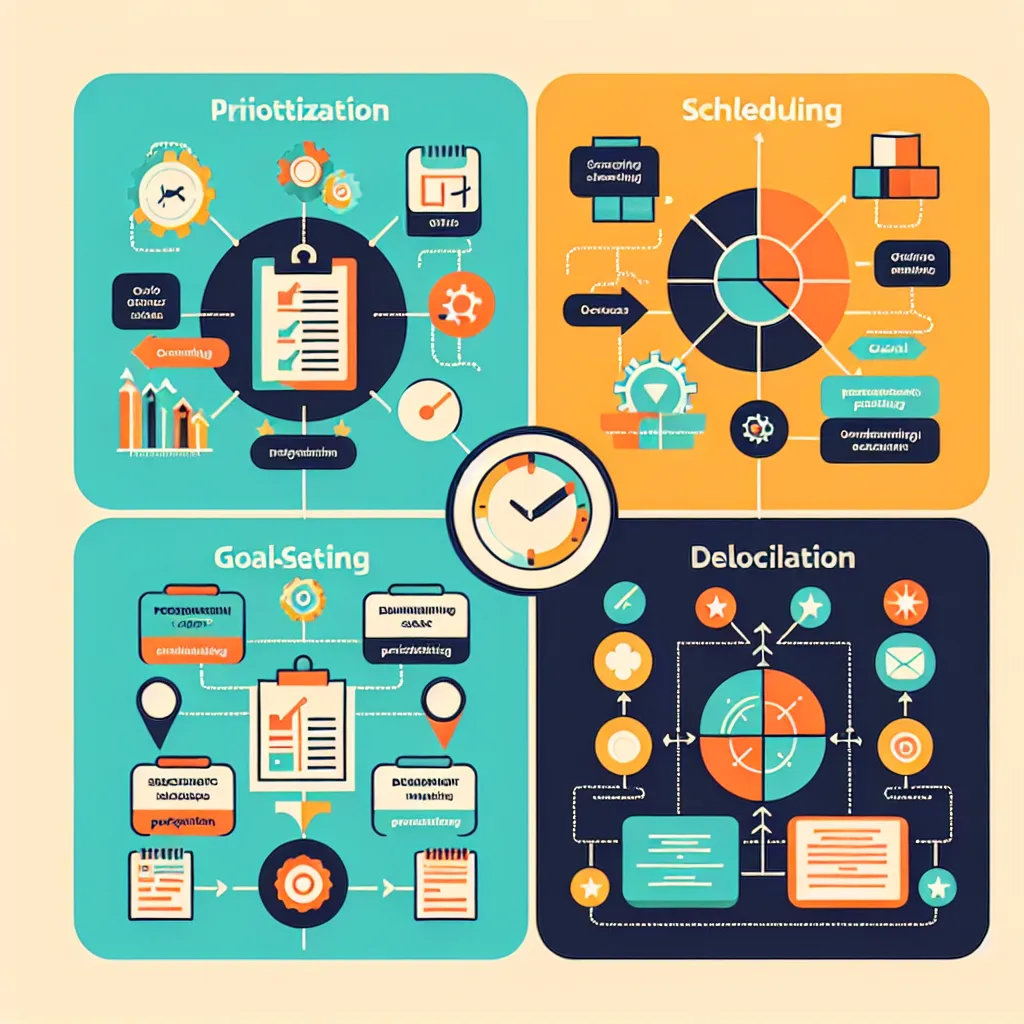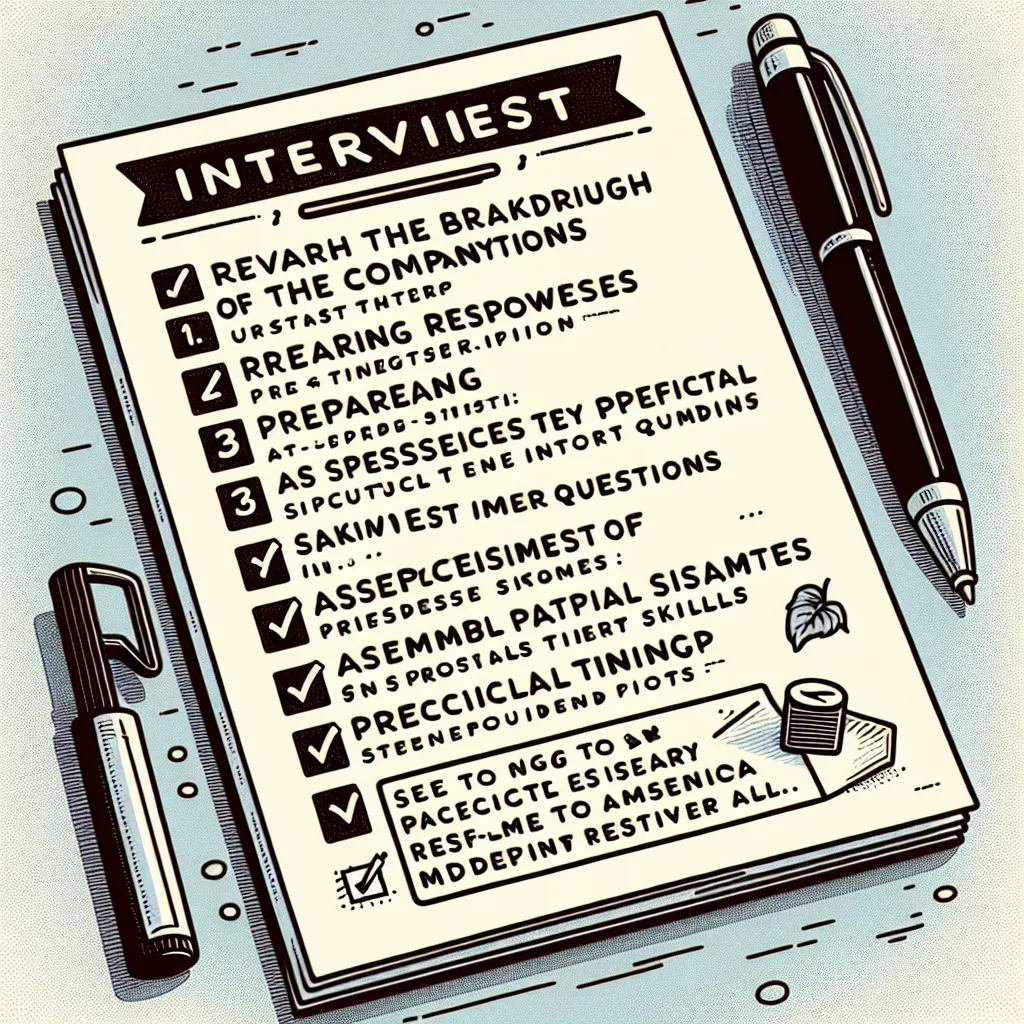Time management skills are a crucial aspect that employers often assess during job interviews. Being able to effectively communicate your ability to manage time and prioritize tasks can significantly boost your chances of securing the desired position. This article will guide you through answering questions about time management skills in English interviews, providing valuable insights and practical tips to help you excel.
Understanding Time Management Skills in the Context of Job Interviews
Time management skills refer to the ability to use your time efficiently and productively. In a professional setting, this involves prioritizing tasks, meeting deadlines, and balancing multiple responsibilities. Employers value these skills because they contribute to increased productivity, reduced stress, and improved overall performance.
 Time Management Skills Infographic
Time Management Skills Infographic
Why Employers Ask About Time Management Skills
Interviewers ask about time management for several reasons:
- To assess your ability to handle workload
- To understand how you prioritize tasks
- To evaluate your organizational skills
- To gauge your effectiveness in meeting deadlines
- To determine if you can balance multiple responsibilities
Common Time Management Questions and Sample Answers
Let’s explore some typical questions about time management skills and how to answer them effectively.
1. How do you prioritize your tasks?
Sample Answer: “I prioritize my tasks by assessing their urgency and importance. I use the Eisenhower Matrix, which helps me categorize tasks into four quadrants: urgent and important, important but not urgent, urgent but not important, and neither urgent nor important. This method allows me to focus on high-priority tasks first while ensuring that long-term, important projects aren’t neglected.”
2. Can you describe a time when you had to juggle multiple projects? How did you manage it?
Sample Answer: “In my previous role, I was responsible for managing three major client projects simultaneously. To handle this, I created a detailed project timeline for each, identifying key milestones and deadlines. I used project management software to track progress and set reminders. I also communicated regularly with team members and stakeholders to ensure everyone was aligned on priorities. By breaking larger tasks into smaller, manageable chunks and allocating specific time slots for each project, I was able to meet all deadlines successfully.”
3. How do you handle unexpected tasks or interruptions?
Sample Answer: “I understand that unexpected tasks are a part of any job. When they arise, I quickly assess their urgency and importance relative to my current tasks. If it’s a high-priority interruption, I’ll adjust my schedule to accommodate it. For less urgent matters, I add them to my to-do list and schedule them for an appropriate time. I also try to build some flexibility into my daily schedule to account for unexpected tasks without derailing my entire day.”
4. How do you ensure you meet deadlines?
Sample Answer: “Meeting deadlines is crucial in my work ethic. I start by breaking down projects into smaller, manageable tasks and setting mini-deadlines for each. I use digital tools like Trello or Asana to track progress and set reminders. I also believe in the importance of buffer time, so I aim to complete tasks slightly ahead of the actual deadline to account for any unforeseen issues. Regular communication with team members and stakeholders about progress helps keep everyone aligned and allows for early identification of potential delays.”
5. How do you maintain work-life balance?
Sample Answer: “Maintaining a healthy work-life balance is essential for long-term productivity and well-being. I achieve this by setting clear boundaries between work and personal time. I use time-blocking techniques to allocate specific hours for work tasks and ensure I stick to those schedules. Outside of work hours, I make it a point to engage in activities that help me recharge, such as exercise, hobbies, or spending time with family and friends. I also practice good sleep hygiene to ensure I’m well-rested and productive during work hours.”
Tips for Answering Time Management Questions
- Use specific examples: Always back up your claims with concrete instances from your past experiences.
- Highlight relevant tools: Mention any time management tools or techniques you use, such as the Pomodoro Technique or specific productivity apps.
- Emphasize results: Focus on how your time management skills have led to positive outcomes in your work.
- Show adaptability: Demonstrate your ability to adjust your time management strategies based on changing priorities or workloads.
- Be honest: If you’ve struggled with time management in the past, mention how you’ve worked to improve this skill.
 Interview Preparation Checklist
Interview Preparation Checklist
Common Mistakes to Avoid When Discussing Time Management Skills
- Being vague: Avoid general statements without specific examples.
- Overemphasizing multitasking: While the ability to handle multiple tasks is important, focusing too much on multitasking can suggest inefficiency.
- Neglecting to mention collaborative aspects: Time management often involves coordinating with others, so don’t forget to highlight your teamwork skills.
- Failing to address personal development: If you’ve improved your time management skills over time, share this growth to show self-awareness and adaptability.
- Ignoring the importance of work-life balance: Demonstrating that you can manage your time effectively while maintaining a healthy work-life balance is crucial.
Follow-up Questions and Suggested Answers
-
Q: How do you handle stress when dealing with tight deadlines?
A: “I manage stress by breaking tasks into smaller, manageable parts and focusing on one step at a time. I also practice deep breathing exercises and take short breaks to maintain focus and reduce anxiety.” -
Q: Can you describe a situation where you had to reprioritize your tasks quickly?
A: “In my previous role, our team unexpectedly lost a key client, which required us to quickly shift our focus to securing new business. I immediately reassessed my task list, postponed non-essential tasks, and dedicated more time to prospecting and client outreach activities.” -
Q: How do you delegate tasks when working in a team?
A: “When delegating, I consider each team member’s strengths and current workload. I clearly communicate expectations, deadlines, and provide necessary resources. I also follow up regularly to offer support and ensure tasks are progressing as planned.” -
Q: How do you stay focused during long projects?
A: “For long-term projects, I break them down into smaller milestones and celebrate the completion of each phase. I also use techniques like the Pomodoro method to maintain focus and take regular breaks to avoid burnout.” -
Q: How do you handle conflicting deadlines?
A: “When facing conflicting deadlines, I communicate with all stakeholders to negotiate priorities. I assess the impact of potential delays for each task and work on finding solutions, such as delegating certain tasks or requesting deadline extensions where possible.”
By mastering these time management questions and strategies, you’ll be well-prepared to showcase your skills in English interviews. Remember, effective time management is not just about working harder, but working smarter. Demonstrating your ability to prioritize, adapt, and maintain productivity will make you a standout candidate in any interview.
For more interview preparation tips, check out our articles on how to answer questions about your strengths and handling pressure in the workplace. These resources will further enhance your interview skills and boost your confidence.




